- Home
- Lois Lowry
A Summer to Die Page 8
A Summer to Die Read online
Page 8
"I will, too. I'm telling Mom." I started out of the room.
"Don't you dare," Molly ordered.
I'll be darned if I'll take orders from Molly. Anyway, I really thought my parents ought to know. I went downstairs and told Mom that there was something wrong with Molly's legs; she jumped up with a frightened look and went upstairs. I stayed out of it after that, but I listened.
I heard Mom and Molly arguing. I heard my mother get my father from the study. Then more arguing with Molly. I heard my mother go to the upstairs phone, make a call, and go back to Molly.
Then Molly crying. Yelling. I had never in my life heard Molly like that before. She was screaming, "No! I won't! I won't!"
Things quieted after a few minutes, and then my father came down. His face was very drawn, very tired. "We have to take Molly back to the hospital," he told me abruptly, and without waiting for me to answer, he went out to start the car.
Mom came downstairs with Molly. She was in her bathrobe and slippers, and she was sobbing. When they were by the front door, Molly saw me standing all alone in the living room. She turned to me, still crying, and said, "I hate you! I hate you!"
"Molly," I whispered, "please don't."
They were in the car and ready to leave when I heard my mother call to me. I went outside, letting the screen door bang behind me, and walked over to the car. "Molly wants to tell you something," Mom said.
Molly was in the back seat, huddled in the corner, rubbing her eyes with the back of her hand. "Meg," she said, choking a little because she was trying to stop crying, "tell Ben and Maria not to have the baby until I get home!"
"Okay," I nodded. "I'll tell them." As if they had any control over it! But I would tell them what Molly said, just because Molly asked me to. At that point I would have done anything in the world for Molly.
I went back upstairs, picked up my sneakers and put them in the closet. I made Molly's bed. The pussy willows were still there, in their little vase. The photographs of Will were back on the wall, and the two of Molly and her flowers were with them now. The chalk mark was still there, faded, but there. It was a nice room, except that an hour before, Molly had been in it, and now she wasn't, and it was my fault.
I went down to the darkroom, gathered up the photographs of Maria I'd been working on, and walked across the field to their house.
Will Banks was there, having lunch with Ben and Maria. They were all sitting outside at the picnic table, eating the entire crop of peas. There was a huge bowl of them in the middle of the table, and they were each eating from it with their own spoons, as if it were the most normal sort of lunch in the world.
"Hey, Meg!" Ben greeted me. "How's it going? Have a pea. Have two peas!"
He fed me two peas from his spoon; they were the tenderest, sweetest peas I've ever eaten. I sat down on the bench beside Will, and said, "Molly's back in the hospital, and she says please don't have the baby until she comes home. I know that's a dumb thing to say," and then I started to cry.
Will Banks put his arms around me and rocked me back and forth as if I were a baby. I cried until his shirt collar was wet clear through, saying "It's my fault, it's my fault, it's my fault" over and over again. Will said nothing except "There. There."
Finally I stopped crying, sat up straight, blew my nose on the handkerchief Will gave me, and told them what had happened. No one said very much. They told me, of course, that it wasn't my fault. I knew that already. Ben said, "You know, sometimes it's nice just to have someone to blame, even if it has to be yourself, even if it doesn't make sense."
We sat there quietly for a minute, and then I asked if I could borrow Maria's spoon. She wiped it on her napkin and gave it to me, and I ate all the peas that were left in the big bowl. There were pounds of peas, and I ate them all. I have never been so hungry in my life.
The three of them watched in amazement while I ate all those peas. When I was finished, Maria started to giggle. Then we all started to laugh, and laughed until we were exhausted.
It is so good to have friends who understand how there is a time for crying and a time for laughing, and that sometimes the two are very close together.
I took out the photographs of Maria. Will had seen them, of course, because we'd worked on them together. He is as able in the darkroom now as I am, but our interests are different. He is fascinated by the technical aspects of photography: by the chemicals, and the inner workings of cameras. I don't care so much about those things. I care about the expressions on people's faces, the way the light falls onto them, and the way the shadows are in soft patterns and contrast.
We looked at the pictures together, and talked about them. Ben was much like Will, interested in the problems of exposure and film latitude; Maria was like me: she liked seeing how the shadows curved around the fullness of the baby inside her, how her hands rested on the roundness of her middle, how her eyes were both serene and excited at the same time.
"Meg," she said, "Ben and I were talking about something the other night, and we want you to think it over and talk about it with your parents. If you want to, and if they don't mind, we'd like you to photograph the birth of the baby."
I was floored. "Golly," I said slowly, "I don't know. It never occurred to me. I mean, I don't want to intrude."
But they were both shaking their heads. "No," Ben said. "It wouldn't be an intrusion. We wouldn't want just anyone there, and of course you'd have to be careful to stay out of the way and not to touch anything sterile. But you're special, Meg; you're close to us. Someday Maria and I would like to be able to look back at that moment. We'd like the baby, someday, to be able to see it, too. You're the one who can do it, if you want to."
I wanted to, desperately. But I had to be honest with them, also. "I've never seen a baby being born," I said. "I don't even know much about it."
"Neither have we!" Maria laughed. "But we'll prepare you for that part. Ben will show you our books, and explain everything in advance so that you'll know exactly what to expect when the time comes. Only, Ben," she added to him, "I think you'd better do it soon, because I don't know how much longer we have. The calendar says two weeks, but there are times when I wonder if it might be sooner."
I promised to talk to my parents, and Ben said he would, too. Suddenly I thought of something. "What if it's born at night?" I asked. "There won't be enough light. I could use a flash, I suppose, but—"
Ben held up one hand. "Don't worry!" he said. He cupped his hands into a megaphone and held them against Maria's stomach. Then he spoke to the baby through his hands: "Now hear this, kid. You are under instructions to wait until Molly comes home. Then come, but do it in daylight, you hear?
"That'll do it," Ben said. "Maria and I are determined to have an obedient child."
Before I left, I took Ben aside and spoke to him alone. "I'm sorry, Ben, for what I said that day."
He squeezed my shoulders. "That's okay, Meg. We all say things we're sorry for. But do you understand now what I was talking about that day?"
I shook my head and answered him seriously, honestly. "No. I think you're wrong, to anticipate bad things. And I don't understand why you even want to think about something like that. But I'm still sorry for what I said."
"Well," Ben said, "we're friends, anyway. Hang in there, Meg." And he shook my hand.
Will walked me home across the field. He was very quiet. Halfway home, he said, "Meg, you're very young. Do you think it's a good idea, really, being there when that child is born?"
"Why not?"
"It might be very frightening. Birth isn't an easy thing, you know."
"I know that." I dislodged a small rock with one toe and kicked it through a clump of tall grass. "For pete's sake, Will, how can I learn if I don't take risks? You're the one who taught me that!"
Will stopped short and thought for a minute. "You're absolutely right, Meg. Absolutely right." He looked a little sheepish.
I looked around the field. "Will, what happened to all those lit
tle yellow flowers that were here last month?"
"Gone until next June," he told me. "They've all been replaced by July's flowers. Molly's goldenrod will be in bloom before long."
"I liked those little yellow ones," I said grumpily.
"'Margaret, are you grieving over Goldengrove unleaving?'" Will asked.
"What?" I was puzzled. He never called me Margaret; what was he talking about?
He smiled. "It's a poem by Hopkins. Your father would know. 'It is the blight man was born for, It is Margaret you mourn for,'" he went on.
"Not me," I told him arrogantly. "I never mourn for myself."
"We all do, Meg," Will said. "We all do."
That was three weeks ago. July is almost over. Molly isn't home yet. The baby hasn't been born, so I suppose it's following Ben's instructions and waiting for her. I've studied the books on delivering babies with Maria and Ben, and I'm ready to do the photographs. My parents don't mind. When I asked them, they said "Sure" without even discussing it. They're very preoccupied. I know why, finally.
It was a few nights ago, after supper. My dad was smoking his pipe at the kitchen table. The dishes were done; Mom was sewing on the quilt, which is almost finished. I was just hanging around, talking too much, trying to make up for the quiet that had been consuming our house. I even turned the radio on; there was some rock music playing.
"Hey, Dad, dance with me!" I said, pulling at his arm. It was something silly we used to do sometimes, back in town. My dad is a terrible dancer, but sometimes he used to dance with Molly and me in the kitchen; it used to break my mother up.
He finally put down his pipe and got up and started dancing. Poor Dad; he hadn't gotten any better since the last time we did it, and I think I have, a little. But he's pretty uninhibited, and he tried. It was dark outside; we had eaten late. Mom turned on the light, and I could see on the kitchen walls some of the drawings of wild flowers that Molly had been doing, that she had hung here and there. Dad and I danced and danced until he was sweating and laughing. Mom was laughing, too.
Then the music changed, to a slow piece. Dad breathed a great sigh of relief and said, "Ah, my tempo. May I have the pleasure, my dear?" He held out his arms to me and I curled up inside them. We waltzed slowly around the kitchen like people in an old movie until the music ended. We stood facing each other at the end, and I said suddenly, "I wish Molly was here."
My mother made a small noise, and when I looked over at her, she was crying. I looked back at Dad in bewilderment, and there were tears on his face, too, the first time I had ever seen my father cry.
I reached out my arms to him, and we both held out our arms to Mom. She moved into them, and as the music started again, another slow, melancholy song from some past summer I couldn't remember, the three of us danced together. The wild flowers on the wall moved in a gradual blur through our circling and through my own tears. I held my arms tight around the two of them as we moved around in a kind of rhythm that kept us close, in an enclosure made of ourselves that kept the rest of the world away, as we danced and wept at the same time. I knew then what they hadn't wanted to tell me, and they knew that I knew, that Molly wouldn't be coming home again, that Molly was going to die.
9.
I dream of Molly again and again.
Sometimes they are short, sunshine-filled dreams, in which she and I are running side by side in a field filled with goldenrod. She's the old Molly, the Molly I knew all my life, the Molly with long blond curls and her light laugh. The Molly who runs with strong tan legs and bare feet. She runs faster than I can, in my dream, looks back at me, laughing, and I call to her, "Wait! Wait for me, Molly!"
She holds out her hand to me, and calls, with her hair blowing around her, streaked with sun, "Come on, Meg! You can catch up if you try!"
I wake up; the room is dark, and her bed is empty beside mine. I think of her somewhere in a hospital I have never seen, and wonder if she is dreaming the same dream.
Sometimes they are darker dreams of the same field. I am the one, in this darker dream, who has run faster; I have reached some misty destination, a dark and empty house, where I stand waiting for her, watching her from a window as she runs. But the flowers in the field have begun to turn brown, as if summer is ending too soon, and Molly is stumbling; it is she who is calling to me, "Meg, wait! Wait! I can't make it, Meg!" And there is no way I can help her.
I wake from this dream, too, in a dark and empty room from which the sound of her breathing in the next bed has gone.
I have a nightmare in which a baby is born, but is old, already, at birth. The baby looks at us, those of us who are there, with aged and tired eyes, and we realize with horror that his life is ending at the very moment of its beginning. "Why? Why?" we ask, and the baby doesn't answer. Molly is there, and she is angry at our asking; she shrugs coldly and turns away from us. Only she knows the answer, and she won't share it with us, although we plead with her.
I wake terrified that it is real.
I told my father of the dreams. When I was a very little girl and had nightmares, it was always my father who came to my room when I cried out. He used to turn on the light and hold me; he showed me that the dreams weren't true.
Now he can't. We sat on the front steps in the evening, and I blew the gray fuzz of dying dandelions into the pink breeze as the sun was setting. The fears that come into my room in the night seemed far away, but Dad said, "Your dreams come out of what is real, you know. It helps, some, to think about what they mean. That you and Molly are going to be separated, even though you don't want to be. That you want to know why, why life sometimes ends too soon but no one can answer that."
I crushed the stem of a dandelion in my hand. "It doesn't help, understanding why I have nightmares. How can it help? It can't make Molly better.
"It isn't fair!" I said, the way I said it so often when I was a little girl.
"Of course it isn't fair," Dad said. "But it happens. It happens, and we have to accept that."
"And it wasn't fair that you and Mom didn't tell me!" I said, looking for someone to blame for something. "You knew all along, didn't you? You knew from the very beginning!"
He shook his head. "Meg, the doctors told us that there was a chance she would be all right. They have these medicines that they try. There is always a chance something will work. There was no way that Mom and I could tell you when there was a chance."
"Then isn't there still a chance?"
He shook his head slowly. "Meg, we can hope for it. We do hope for it. But the doctors say there isn't, now. The medicines aren't working for Molly now."
"Well, I don't believe them."
He put his arm around me and watched the sun setting.
Then he said, in his quoting voice, "'We are such stuff as dreams are made on, and our little life is rounded with a sleep.' That's Shakespeare, Meg."
I was furious. "What did he know? He never knew Molly. And why Molly? Dad, I'm the one who always got into trouble! I'm the one who threw up on my own birthday cake, who broke the window in kindergarten, who stole candy from the grocery store. Molly never did anything bad!"
"Meg," he said. "Meg. Don't."
"I don't care," I said angrily. "Someone has got to explain to me why."
"It's a disease, Meg," he said in a tired voice. "A horrible, rotten disease. It just happens. There isn't any why."
"What's it called?" Better to know what your enemy is before you confront it, Will had told me once.
Dad sighed. "It's called 'acute myelogenous leukemia.'"
"Can you say that three times fast?" I asked him bitterly.
"Meg," said Dad, putting his arms around me and holding me so tight that his voice was muffled, "I can't even say it once. It breaks my heart."
Mom and Dad go back and forth to the hospital in Portland. They don't take me. I am too young, according to the hospital rules, to visit, but I don't think that's the reason. I think they don't want me to have to see Molly dying.
I don't argue with them. All the times I've argued with them in the past: to be allowed to see a certain movie, to drink a glass of wine with dinner, to sit in the back of one of Dad's classes at the university, listening. "I'm old enough! I'm old enough!" I remember saying. Now I don't argue, because they know and I know I'm old enough; but I'm scared. The dreams and the emptiness at home are enough; it takes all the courage I have to deal with those. I'm afraid to see my own sister, and grateful that they don't ask me to come.
When she's at home, my mother stitches on the quilt and talks about the past. Every square that she fits into place reminds her of something. She remembers Molly learning to walk, wearing the pale blue overalls that are now part of the pattern of the quilt.
"She used to fall down on her bottom, again and again," my mother smiled. "She always jumped back up laughing. Dad and I used to think sometimes that she fell on purpose, because it was funny. Molly was always looking for things to laugh at when she was a baby."
"What about me? Do you remember me learning to walk?"
"Of course I do," Mom said. She turned the quilt around until she found the piece she was looking for, a flowered pattern of blue and green. "This was a little dress. It was summer, and you weren't yet a year old. You were so impatient to do the things that Molly could do. I remember watching you in the back yard that summer. You were very serious and solemn, pulling yourself to your feet, trying to walk across the grass alone.
"You'd fall, and never take time to cry, or laugh, either. Your forehead would wrinkle up as you figured out how to do it right, and tried again."
"I'm like Dad."
She smiled. "Yes, you are, Meg."
"And Molly is more like you. I always thought that was an easier way to be."
Mom sighed and thought about it for a minute. "Well," she said, "it's easier for the little things, to be able to laugh at them. It makes life seem pretty simple, and a lot of fun.

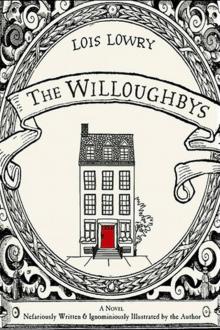 The Willoughbys
The Willoughbys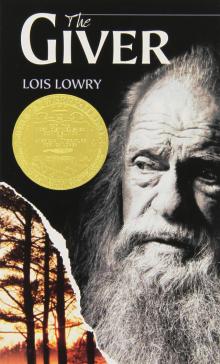 The Giver
The Giver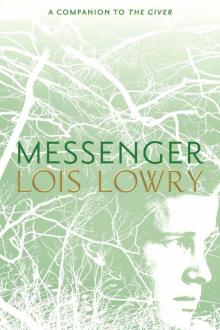 Messenger
Messenger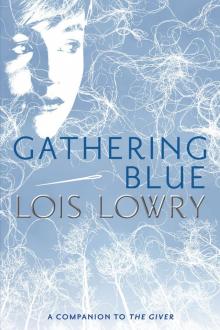 Gathering Blue
Gathering Blue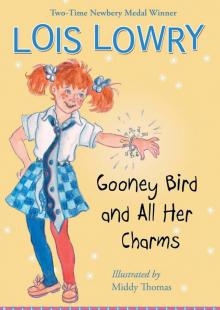 Gooney Bird and All Her Charms
Gooney Bird and All Her Charms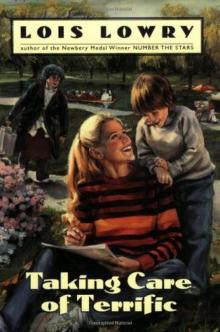 Taking Care of Terrific
Taking Care of Terrific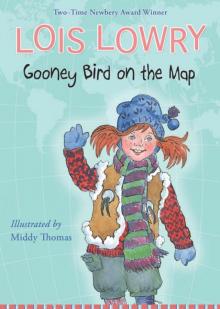 Gooney Bird on the Map
Gooney Bird on the Map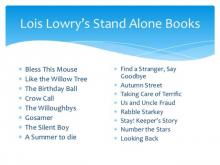 The Birthday Ball
The Birthday Ball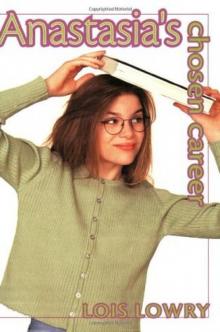 Anastasia's Chosen Career
Anastasia's Chosen Career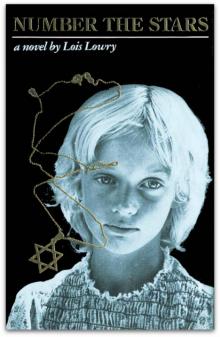 Number the Stars
Number the Stars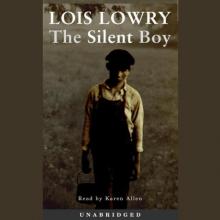 The Silent Boy
The Silent Boy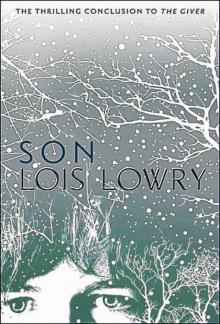 Son
Son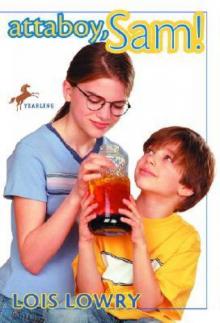 Attaboy, Sam!
Attaboy, Sam!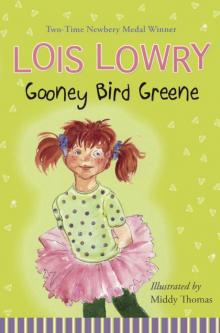 Gooney Bird Greene
Gooney Bird Greene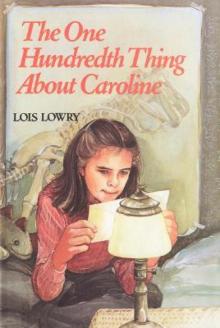 The One Hundredth Thing About Caroline
The One Hundredth Thing About Caroline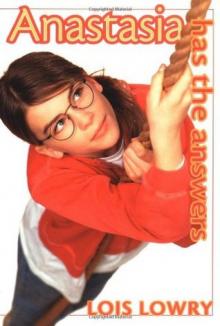 Anastasia Has the Answers
Anastasia Has the Answers Your Move, J. P.!
Your Move, J. P.!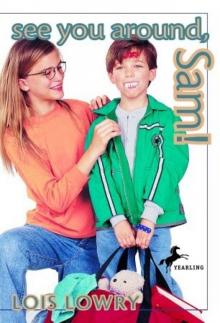 See You Around, Sam!
See You Around, Sam!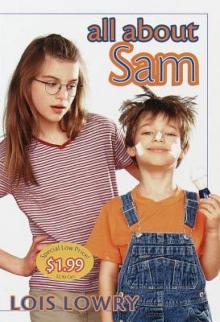 All About Sam
All About Sam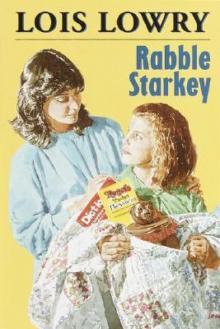 Rabble Starkey
Rabble Starkey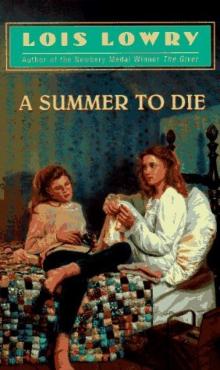 A Summer to Die
A Summer to Die Anastasia at This Address
Anastasia at This Address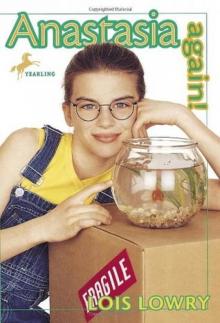 Anastasia Again!
Anastasia Again!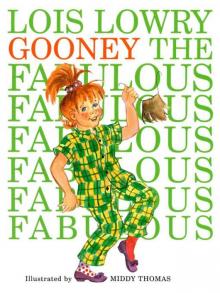 Gooney the Fabulous
Gooney the Fabulous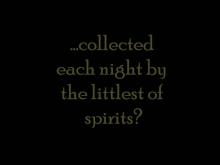 Gossamer
Gossamer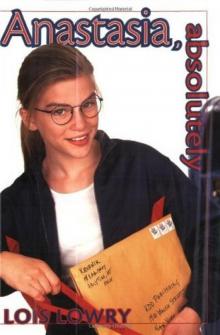 Anastasia, Absolutely
Anastasia, Absolutely Gooney Bird Is So Absurd
Gooney Bird Is So Absurd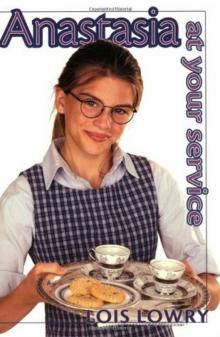 Anastasia at Your Service
Anastasia at Your Service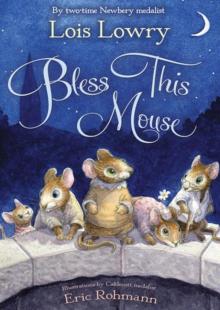 Bless this Mouse
Bless this Mouse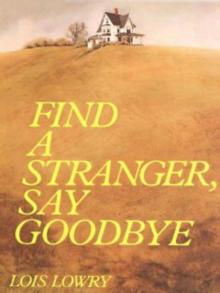 Find a Stranger, Say Goodbye
Find a Stranger, Say Goodbye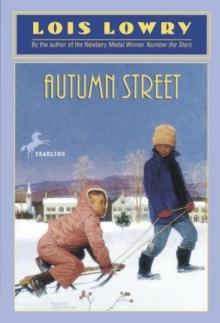 Autumn Street
Autumn Street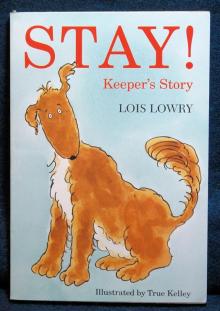 Stay Keepers Story
Stay Keepers Story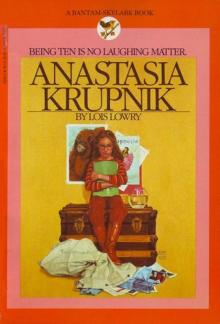 Anastasia Krupnik
Anastasia Krupnik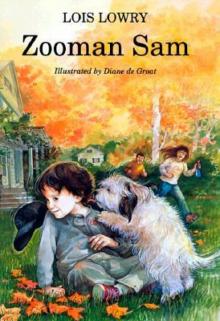 Zooman Sam
Zooman Sam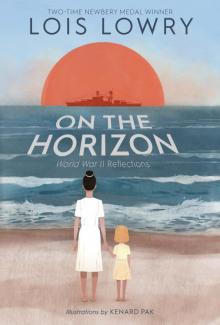 On the Horizon
On the Horizon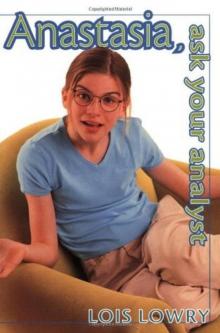 Anastasia, Ask Your Analyst
Anastasia, Ask Your Analyst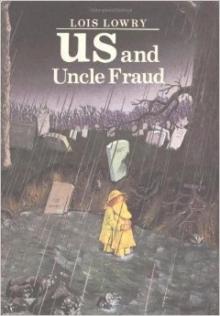 Us and Uncle Fraud
Us and Uncle Fraud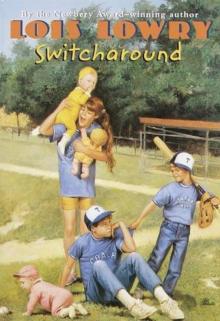 Switcharound
Switcharound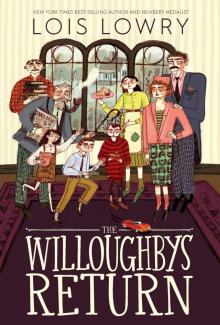 The Willoughbys Return
The Willoughbys Return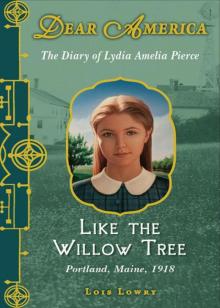 Dear America: Like the Willow Tree
Dear America: Like the Willow Tree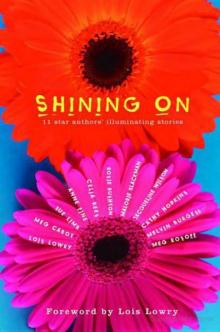 Shining On
Shining On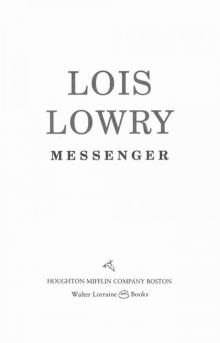 Messenger (The Giver Trilogy)
Messenger (The Giver Trilogy)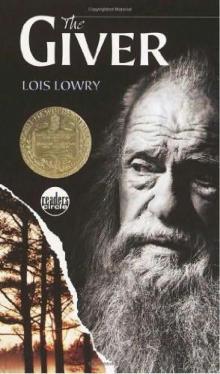 Giver Trilogy 01 - The Giver
Giver Trilogy 01 - The Giver